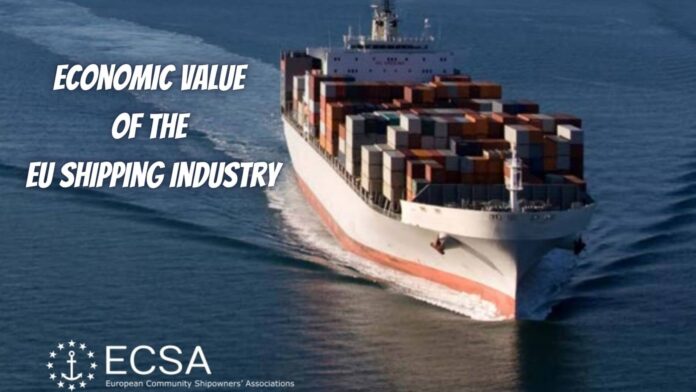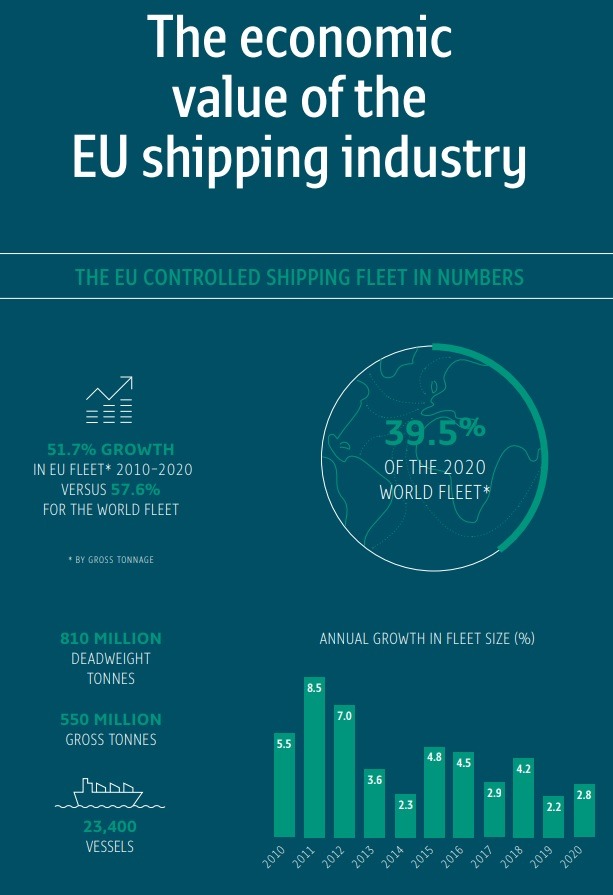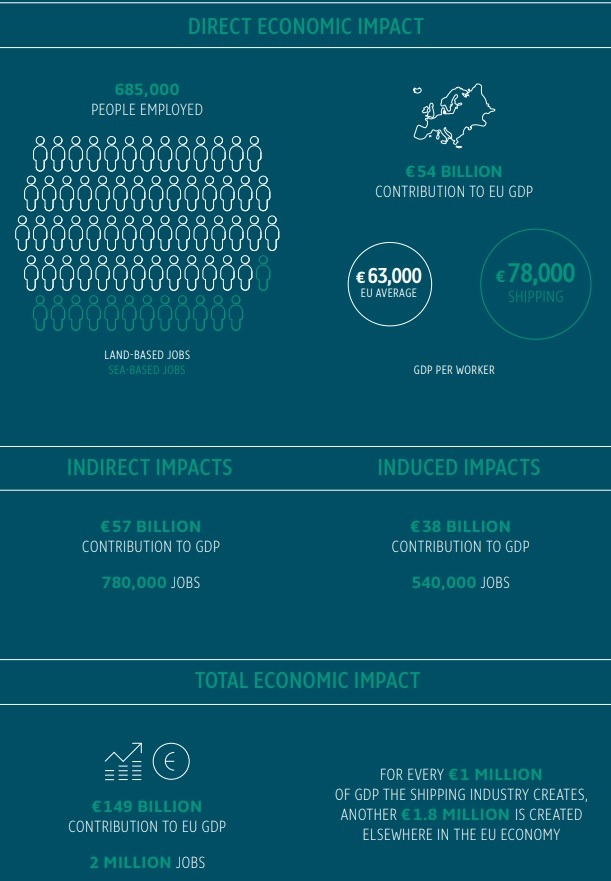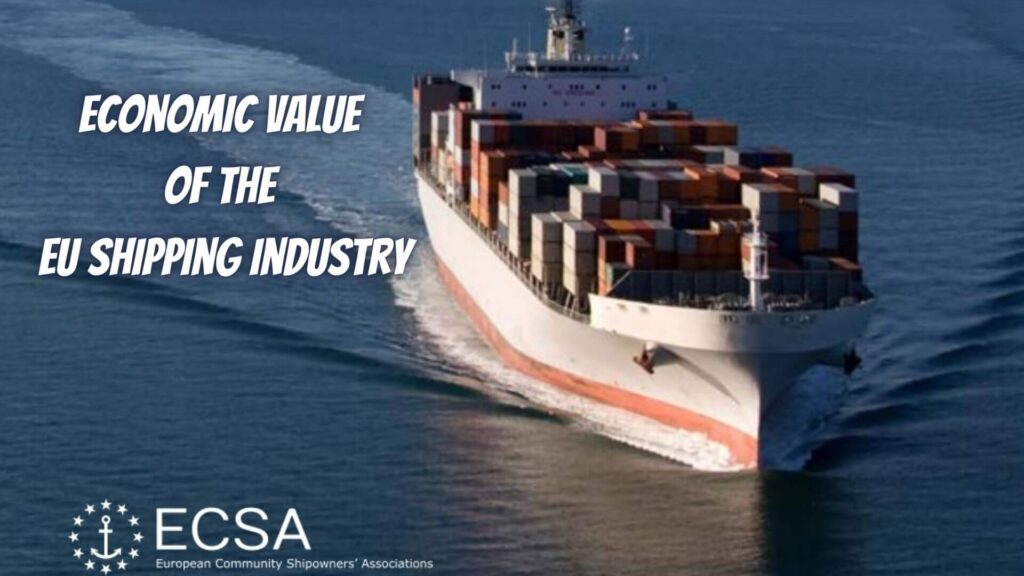
(www.MaritimeCyprus.com) Launched earlier in February during the 2020 European Shipping Week 2020, ECSA has produced now, a more comprehensive publication of the latest figures on the Economic Value of European shipping by Oxford Economics.

Shipping has always been one of the most valuable assets of the EU, economically, socially and culturally. According to the latest information from 2018, European shipping directly contributed €54 billion to the EU's GDP. Taking into account the spillover effects onto other sectors such as supply chain and worker spending impacts, the total contribution stands at €149 billion. The industry directly employs 685,000 people, and it supports up to 2 million jobs when including the impact on other sectors.
In light of the European Green Deal and the industry's own ambition to decarbonise under the IMO's Initial Strategy on Reduction of GHG Emissions from Ships adopted in 2018, shipping is making steady progress towards these goals. At the same time, it is also facing unprecedented challenges brought forth by a downward global economic outlook and unfair competition from state-sponsorship in third countries.

This report presents updated estimates of the economic contribution of the EU shipping industry, as previously presented in Oxford Economics’ 2014, 2015 and 2018 studies on “The economic value of the EU shipping industryâ€. All these reports were prepared on behalf of the European Community Shipowners’ Associations (ECSA).
- The EU shipping industry directly employed 685,000 people and supported a contribution
to GDP of nearly €54 billion during 2018 - Once supply chain and worker spending multiplier impacts are taken into account, the
shipping industry’s employment contribution rises to over 2.0 million jobs - The total GDP contribution of the industry, including supply chain and worker spending impacts, is estimated to have been €149 billion in 2018
- At €78,000 per worker in 2018, productivity in the EU shipping industry remains above the EU average, as well as that of sectors such as business services and manufacturing
To find out more, click below to download the full report:
Source:Â ECSA
https://youtu.be/J7txa08tsgI















